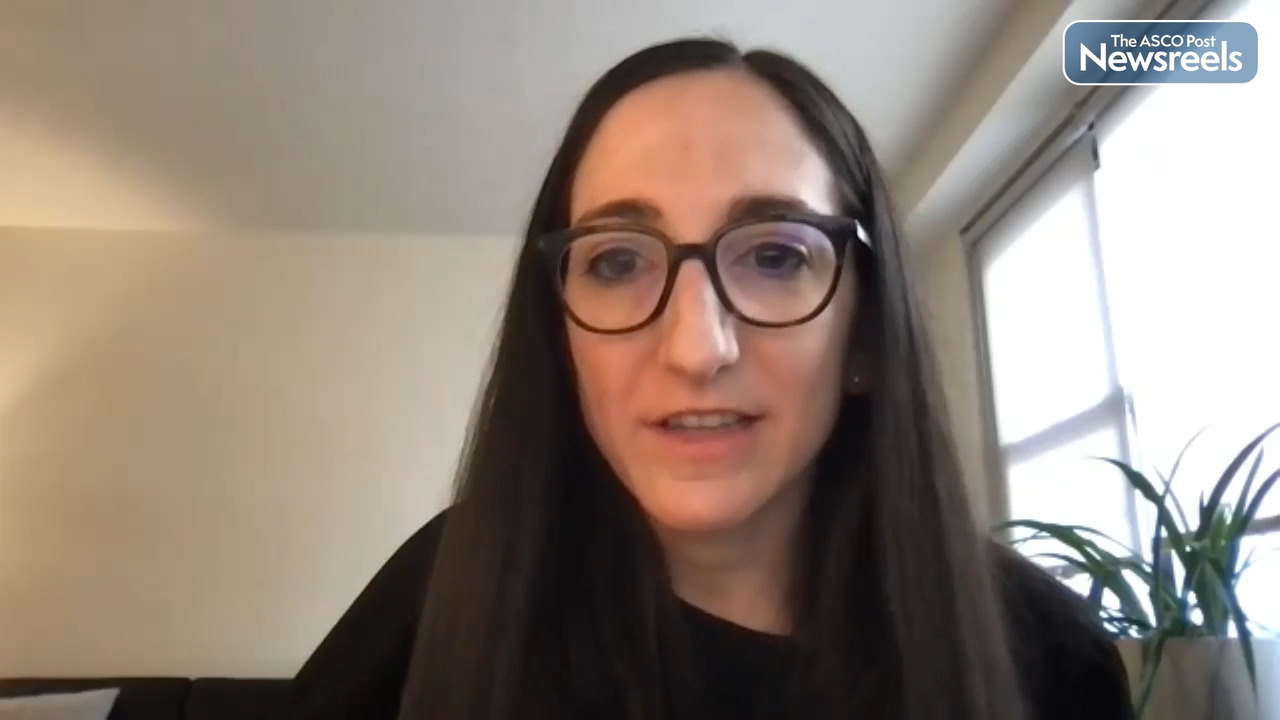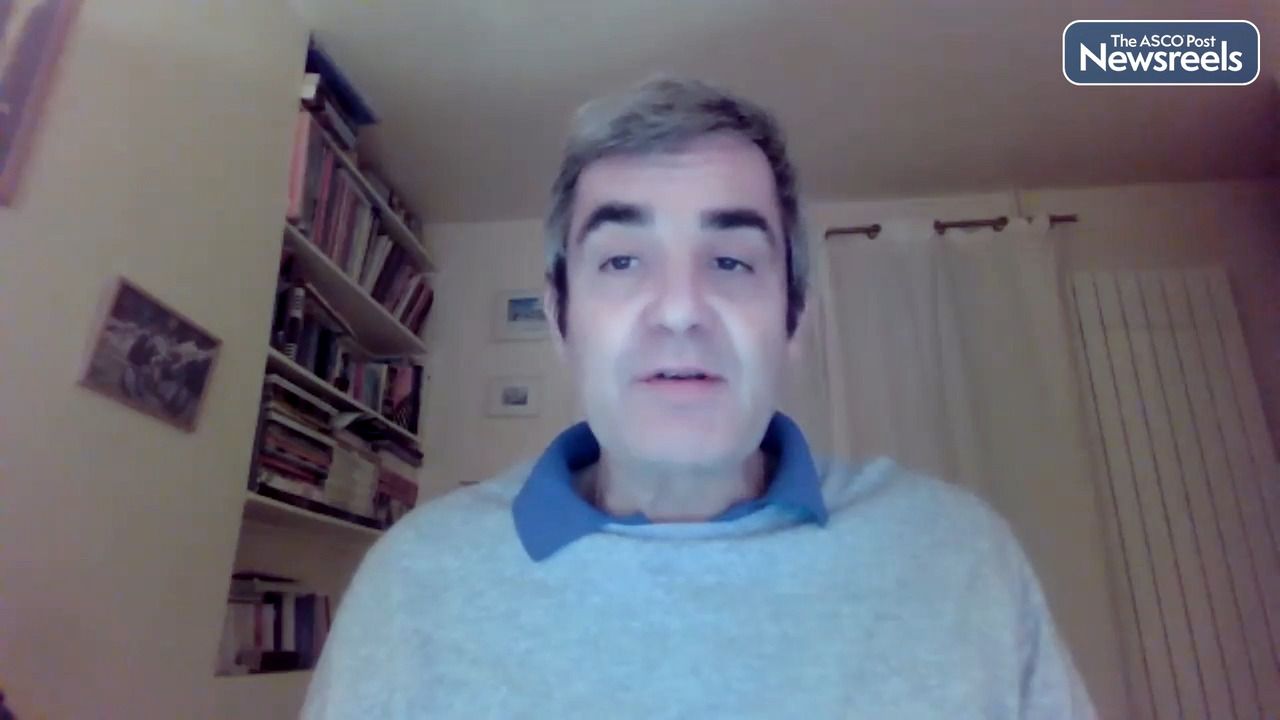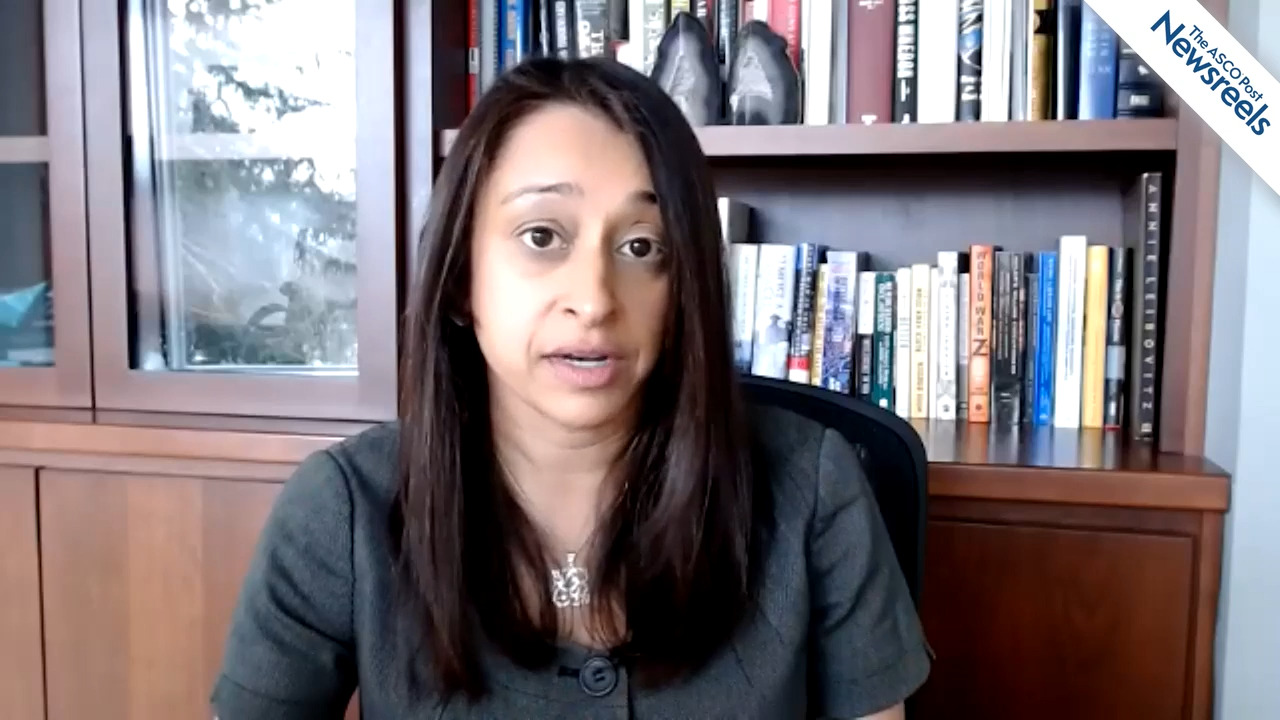Heinz-Josef Lenz, MD, on Colorectal Cancer: Update From the CheckMate 9X8 Trial on Nivolumab, mFOLFOX6, and Bevacizumab
2022 ASCO Gastrointestinal Cancers Symposium
Heinz-Josef Lenz, MD, of USC Norris Comprehensive Cancer Center, discusses phase II results from the CheckMate 9X8 study, which compared nivolumab plus fluorouracil/leucovorin/oxaliplatin (mFOLFOX6) and bevacizumab vs mFOLFOX6 and bevacizumab in the first-line treatment of metastatic colorectal cancer. A subgroup of patients may benefit from adding nivolumab to the standard of care in this setting (Abstract 8).
The ASCO Post Staff
Melissa Amy Lumish, MD, of Memorial Sloan Kettering Cancer Center, discusses new findings showing a 100% complete response rate to PD-1 blockade alone among the first 11 patients with locally advanced mismatch repair–deficient rectal cancer treated with this approach. None of the patients required chemoradiation or surgery, thus avoiding their attendant morbidities, and so PD-1 blockade may represent a new treatment paradigm. Follow-up on the durability of response is needed (Abstract 16).
The ASCO Post Staff
Thierry André, MD, of Sorbonne University and Saint-Antoine Hospital, discusses phase II results from the GERCOR NEONIPIGA study, which suggests neoadjuvant therapy with nivolumab and ipilimumab may be associated with a high pathologic complete response rate in patients with localized microsatellite instability–high or mismatch repair–deficient esophagogastric adenocarcinoma. This study raises the question of whether surgery could be delayed or avoided for some patients (Abstract 244).
The ASCO Post Staff
Nilofer Saba Azad, MD, of Johns Hopkins Sidney Kimmel Cancer Center, assesses the findings from the phase III TOPAZ-1 trial, a study of durvalumab in combination with gemcitabine plus cisplatin in patients with advanced biliary tract cancer. Dr. Azad explains why the study sets a potential new standard of care of gemcitabine plus cisplatin and durvalumab in unselected patients.
The ASCO Post Staff
Kohei Shitara, MD, of Japan’s National Cancer Center Hospital East, discusses a long-term data follow-up from CheckMate 649, which support the continued use of nivolumab plus chemotherapy as first-line treatment in patients with advanced gastric, gastroesophageal junction, and esophageal adenocarcinomas (Abstract 240).
The ASCO Post Staff
Yu Sunakawa, MD, PhD, of Japan’s St. Marianna University School of Medicine, discusses his findings from the DELIVER trial, which suggest the gut microbiome may predict skin toxicities in patients with advanced gastric cancer who are treated with nivolumab. In addition, some single nucleotide polymorphisms, such as NOTCH1, SEMA4D, NLRC5, and IL-6R genes, may potentially become markers for diarrhea and skin toxicities with this agent.





